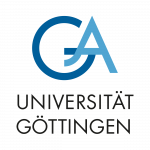- # Infoveranstaltungen intern
- # Ordnungsänderungen
- # Qualitätsrunden
- # Schon gewusst?
- Absolventenfeier
- Allgemein
- Anmeldezeiten Module
- Auslandsstudium
- Bachelor
- FlexNow
- Infos der Fachgruppe
- Klausureinsicht/Prüfungen
- Master
- Master KliPPT
- O-Phase für Erstsemester
- Pb-Stunden
- Praktika & Jobs
- Prüfungsamt
- Sprechzeiten/Urlaub/Krankheit
- Stundenplan
- Veranstaltung/Vortrag
- Wichtige Infos!
-
Archiv
-
Suche
-
Kontakt
-
Studiengangskoordination
und Fachberatung Psychologie
Dr. Nuria Brinkmann
Sprechzeiten: Die, Mi, Do 9 - 12 Uhr
Tel. +49 551 39 23652
Email Studienbüro Psychologie
Terminvergabe in Stud.IP -
Studiengangskoordination und Studienberatung Master Klinische Psychologie und Psychotherapie
Dipl.-Psych. Cornelia Bernardi-Pritzkow
=> Sprechzeiten
Email Studienbüro Klinische Psychologie und Psychotherapie
Tel. +49 551 39 29262
Terminvergabe in Stud.IP
Tagesarchive: 25. März 2021
Student to Student Coaching
Veröffentlicht unter Veranstaltung/Vortrag
Kommentare deaktiviert für Student to Student Coaching
Modul Statistik Refresh
Das Modul „Statistik Refresh“ richtet sich an Studierende, die am Ende ihres Bachelorstudiums angelangt sind und in Kürze ihre Bachelorarbeit schreiben werden (in der Regel 6. Semester Bachelor). Es findet im kommenden Semester online statt. Die Grundlagen der Statistik werden … Weiterlesen
Veröffentlicht unter Anmeldezeiten Module, Bachelor
Kommentare deaktiviert für Modul Statistik Refresh
Aktionstag Studienberatung
Wer sich an einer der niedersächsischen Hochschulen einschreiben will, hat die Wahl zwischen über 1.500 zum Teil einzigartigen Studiengängen. Da kann die Entscheidung schon schwerfallen! Am Donnerstag, 25. März 2021, bietet die kfsn mit den 15 Zentralen Studienberatungsstellen (ZSBn) der … Weiterlesen
Veröffentlicht unter Veranstaltung/Vortrag
Kommentare deaktiviert für Aktionstag Studienberatung
Einladung zum Kolloquium
Dear all, Dr. Brian Leahy (from Harvard University) will give a virtual talk at the CogSci Colloquium on Thursday, March 25, at 3 pm. Title: Can’t you see the possibilities? Evidence that 3-year-olds cannot represent possibilities as such Abstract:This presentation assembles an argument … Weiterlesen
Veröffentlicht unter Veranstaltung/Vortrag
Kommentare deaktiviert für Einladung zum Kolloquium
Versuchsteilnehmer*innen gesucht
honeycomb@uni-goettingen.de https://terminplaner4.dfn.de/computer-austauschspiel-2021
Veröffentlicht unter Pb-Stunden
Kommentare deaktiviert für Versuchsteilnehmer*innen gesucht

